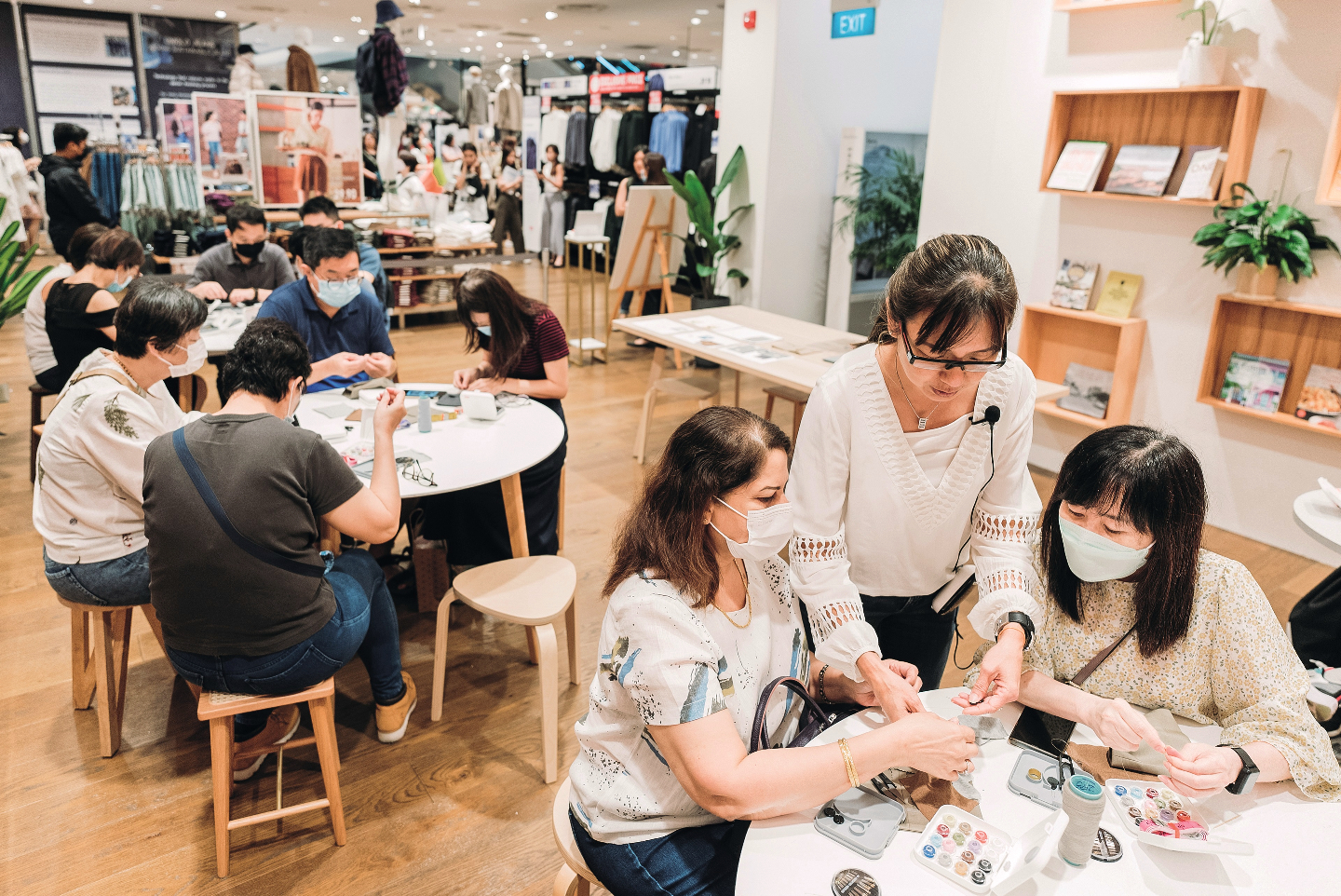
Josephine Ng of Haute Alteration Initiative showing customers how to repair clothing at the workshop (All photos: Uniqlo)
The thing about simple clothing stitched with quality is that you can wear it frequently and for a long time. If asked why you like a particular jacket or tee, you would probably just say it is comfortable.
With comfort comes confidence, which adds a spring in your step. And that is Uniqlo’s aim behind its LifeWear — practical, everyday clothing designed to make life better, with thought given to materials, finishes and customer needs, which are always changing.
LifeWear, created to be of the time and for the time, is part of the warp and weft of Uniqlo’s sustainability efforts, rooted in respect for the environment. The brand, whose name is abbreviated from Unique Clothing Warehouse, which opened its first outlet in Japan in 1984, is owned by Fast Retailing Co Ltd, a Japanese retail holding company with global headquarters in Tokyo. Today, Uniqlo has more than 2,400 stores across the world.
Yukihiro Nitta, group executive officer, sustainability, of Fast Retailing, was in Singapore recently for the launch of the second Re.Uniqlo Studio at its Orchard Central global flagship store. The studio welcomes customers to bring in their Uniqlo apparel for repair, so they can continue to wear them for years.
Nitta then met Malaysian media to talk about the challenges Fast Retailing faces in its sustainability efforts, such as climate change, the circular economy, water, waste material and chemical management. He had joined the company in 2000 and worked in various roles before assuming his current position in 2016.
uniqlo_yukihiro_nitta_spore_1.jpg
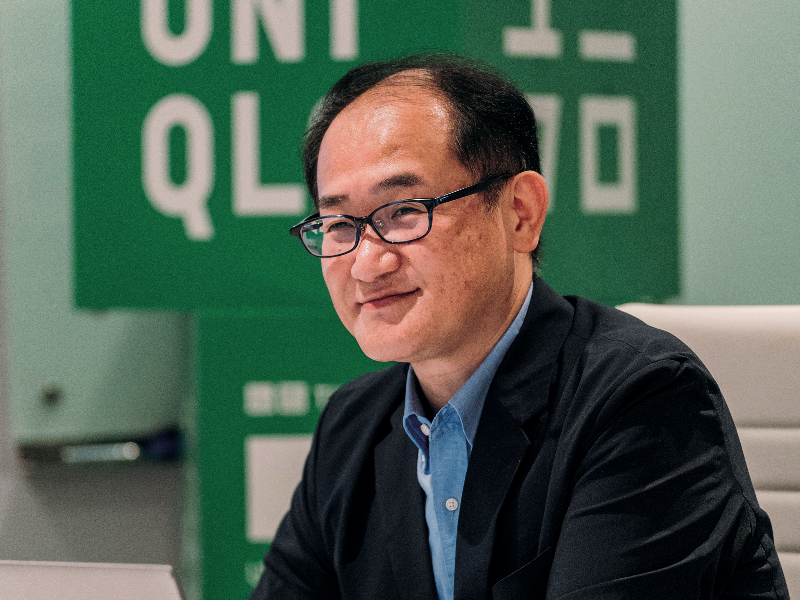
Fast Retailing’s vision is to change the world by changing clothes as well as conventional wisdom. It plans to do that by going beyond what customers, especially the younger generation, want. “Every year, we feel their expectations are going higher.”
Customers in western countries are more aware of sustainability and the issues surrounding it, but not so in Asia, especially Japan. Many are still not interested. “We will fight to work with them with our services, our sustainable items and increase awareness through our efforts and items.”
Numbers lend strength to its endeavours, especially those that embed the inherent value of clothing. What Uniqlo does at the store with clients and staff, such as having the repair service and workshops, is important because the concept of recycle, reuse and reduce makes effective use of resources and reduces the industry’s impact on the environment.
“From the time our production starts until we make a sale, and even after that, we want to be responsible for our own products. We take back recyclable items from customers because, as a LifeWear brand, we want them to wear our clothing for the long term.”
Uniqlo’s end-to-end approach starts with product creation, for which it gets customer input on what they want, and continues through the entire supply chain — from the responsible procurement of raw materials to the manufacturing process to distribution. When customers no longer wear their clothes, they can take them back to the store and the items will be reused or recycled.
uniqlorepairworkshop-2.jpg
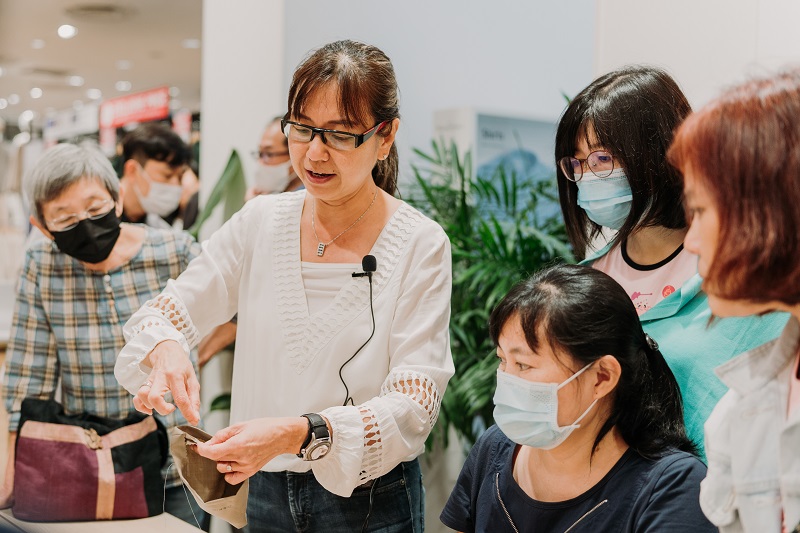
Traceability is important, from sourcing to sale, in between which is the environment where the products are made. Animals are not harmed during the entire process and human rights are protected, Nitta says. “We have to be able to explain that to customers; we need to market that our approach is such.”
Reducing wastage and unnecessary stock is crucial too to make the business more efficient, he adds. In turn, that helps bring prices down, making the brand affordable to customers. Being sustainable ecologically and in business is a challenge, but it can be done.
“The difficult thing is, besides going beyond the expectations of customers, we have to consider global problems, like the weather. We are very proud of the quality of our products. While maintaining quality and price — inflation is very serious now — this week, we made the biggest profit in history,” Nitta shares during the session.
Making clothes that last requires lasting support and the brand’s strength lies in having partners working alongside it for years. “Our biggest point is that we have our partner factories — big, influential factories — that have been working with us on a long-term basis.”
Going forward, Uniqlo, which aims to be carbon neutral by 2050, wants to promote more recycling and work with external partners to develop and promote new recycling materials and innovations and their use. It is looking at having one-stop sites that can clean, repair, store, resell and receive clothing donations.
Durability, utility, reusability and recyclability are buzzwords that drive sustainability. With the Re.Uniqlo Studio, customers know there are ready hands to help make their LifeWear last longer.
“Whenever we make anything, we want it to be useful for a long time and to be used very often,” says Nitta.
uniqlo_repair_workshop.jpg
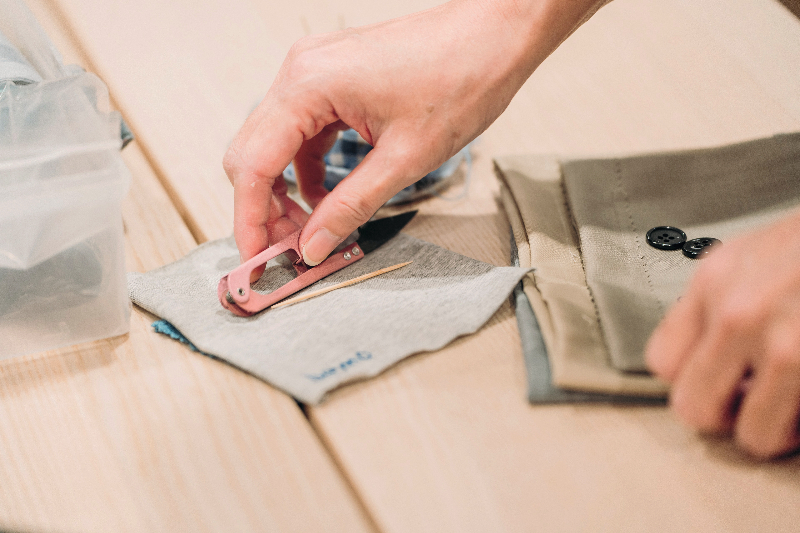
Singapore launches second Re.Uniqlo Studio at Orchard Central
Uniqlo Singapore marked International Repair Day on Oct 15 — it takes place every third Saturday of that month — with needles and thread at its second Re.Uniqlo Studio, launched the day before at its Orchard Central global flagship store.
After a talk on the value of repair at the studio, three hour-long sessions of a workshop on basic hand-sewing repair techniques were held in partnership with Haute Alteration Initiative. Eager participants lost no time learning to mend split seams and holes, and replace fallen buttons, to the burr of electric sewing machines and a buzz of activity across the floor.
The studio is part of the Re.Uniqlo programme, which aims to keep the brand’s clothes in use longer by actively helping customers extend their life cycle. Repairing, remaking, reusing and recycling well-loved items contribute to a circular economy and maximise resource efficiency by eliminating waste.
On-site repair of Uniqlo apparel — including patching torn pockets, fixing loose hems and sewing broken belt loops — is available daily at S$5 (about RM16) per item. The brand is looking to host more talks and workshops to emphasise the value of repair because, for one, it can inspire people to think green.
Staff supporting the repair service undergo training with Haute Alteration Inititiative, which aims to equip marginalised women with garment alteration and repair skills so they can attain an adequate source of income and lead a better life.
The Re.Uniqlo Studio is stationed at the new Custom Corner of the Orchard Central store, where customers can be creative and turn well-loved Uniqlo clothes into brand new items. They can bring in their LifeWear and personalise it with customised prints, or an embroidered design, available under its embroidery service.
First piloted at Uniqlo’s Ang Mo Kio store in March, the studio offers easy access to clothes repair, a sustainable practice that breathes fresh life into apparel.
Hwee Lee, Uniqlo Singapore’s senior director of sustainability, says the LifeWear philosophy advocates providing quality and durable clothing that enriches customers’ lives.
“Besides adopting a technology-enhanced production process with a light environmental impact, we are committed to enabling customers to adopt sustainable practices when shopping with us, such as taking ownership and sending their apparel for repairs in-store, rather than an immediate disposal.
“We believe we have an important responsibility not only to produce and sell clothing that our customers can wear for a long time, but also to educate them on ways to maximise their value, so shoppers feel comfortable knowing they can get the most out of our long-lasting LifeWear.”
doeramon_mascot_of_the_re.uniqlo_initiative.jpg
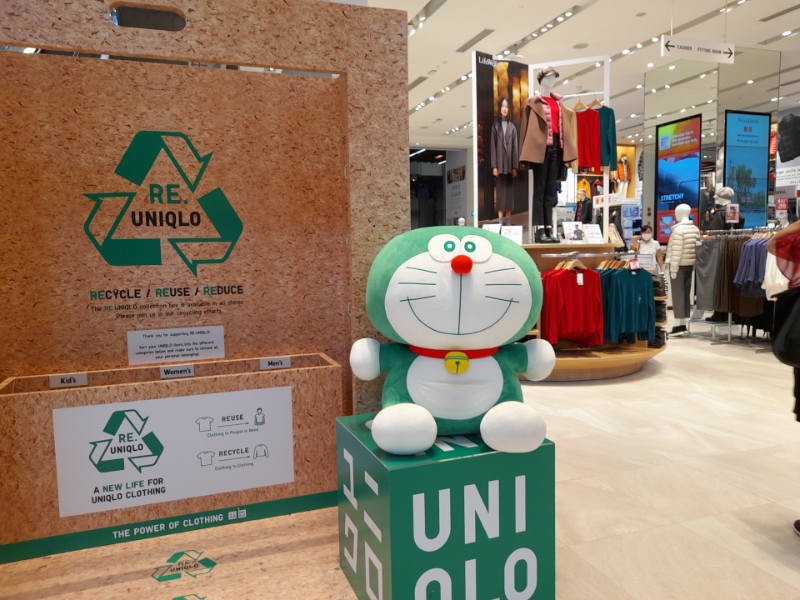
New Re.Uniqlo Studio at DA Square can help clothes last longer
Pull out that comfy pair of Uniqlo jeans you quickly folded away after snagging them on a nail. Take down the versatile jacket that has been hanging idle in your closet because there is a ripped seam.
But, before you start thinking of where and when to wear these favourite items, or with what, drop by the Re.Uniqlo Studio at DA Square in Bandar Sri Damansara, Kuala Lumpur. There, staff are on hand to repair a torn seam, mend holes, restitch hems, lengthen a skirt or reattach buttons for a nominal fee, and give new life to well-loved apparel.
DA Square houses the brand’s first roadside store in Malaysia, and the new studio comes under the Re.Uniqlo programme, which contributes towards a circular economy through upcycling and the 3Rs: Repair, Reuse and Recycle.
To mark the studio launch on Nov 14 and encourage customers to reduce clothing waste, Uniqlo is hosting a workshop the same day at which participants can learn embroidery skills and ways to upcycle unwanted fabric into coasters.
They will be taught different stitches, and how to mend and patch by a team from social enterprise Asfarena Group, which works towards empowering underprivileged women.
With the studio in place from next week, those who are all fingers and thumbs when it comes to needlework can just bring in whatever needs fixing, be it a shirt, skirt or a pair of shorts, for simple on-site repairs. This extends the life of their clothing, or finds fresh use for it.
“Uniqlo’s LifeWear philosophy has always emphasised quality and durability in our clothing. We believe our responsibility is not only to produce and sell apparel that our customers can wear frequently and for a long time, but also ensure clothing and materials last much longer,” says Evelyn Tan, sustainability director of Uniqlo in Malaysia.
“Our Re.Uniqlo Studio at DA Square creates an opportunity for us to partner customers directly to sustain their personal LifeWear items, and foster more sustainable ideas about clothing in the community.”
The Re.Uniqlo Studio will be set up in other stores around the country in the coming months, with a host of events centred on upcycling and repair activities. See here to keep abreast of Uniqlo’s sustainability initiatives.
This article first appeared on Nov 7, 2022 in The Edge Malaysia.


